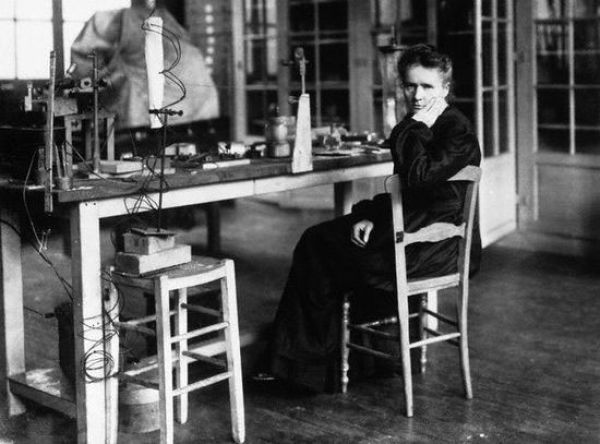
Marie Curie is well known as the first genius to have snagged two Nobel Prizes. The first came in 1903, when she and her husband, Pierre, were awarded a Nobel Prize in physics for their radiation research. Then, in 1911, she nabbed a Nobel in chemistry for her discovery of radium and polonium. But as her reputation as a brilliant scientist was growing, the Polish-born mother of two found herself at the center of a spectacular sex scandal. Four years after Pierre Curie died in a 1906 carriage accident, Marie became entrenched in a torrid love affair with one of his former students, physicist Paul Langevin. The two were sharing a love nest in Paris when Langevin’s wife grew suspicious and decided to investigate. She hired a man to break into their pad and steal incriminating letters, which were then leaked to the press. French newspapers went after the story with gusto. They painted Curie as a home-wrecker and a seductive Jew, even though she wasn’t Jewish. The story played into the xenophobia of the time, and it fanned public outrage. The situation got so bad that one night, Curie returned home from a conference in Belgium to find an angry mob surrounding her house, tormenting her two daughters. She quickly packed up her family and fled to a friend’s home. Eager to defend Curie’s honor, Langevin challenged one of the newspaper’s editors to a duel. The two men faced off against one another, but no one fired a shot. Meanwhile, another man came to Curie’s defense. Albert Einstein offered a bit of reasoning that seemed both peculiar and offensive. He argued that Curie “has a sparkling intelligence, but despite her passionate nature, she is not attractive enough to represent a threat to anyone.†In 1911, at the height of the whole scandal, Curie won her second Nobel Prize. The Nobel committee suggested that she skip the awards ceremony, but she went anyway. The furor died down eventually, no doubt aided by Curie’s humble demeanor and blinding dedication to science.
this was part of my "blogging magazine"
http://goodstuff4u.multiply.com/tag/magazine
CHEERS!


this was part of my "blogging magazine"
http://goodstuff4u.multiply.com/tag/magazine
CHEERS!